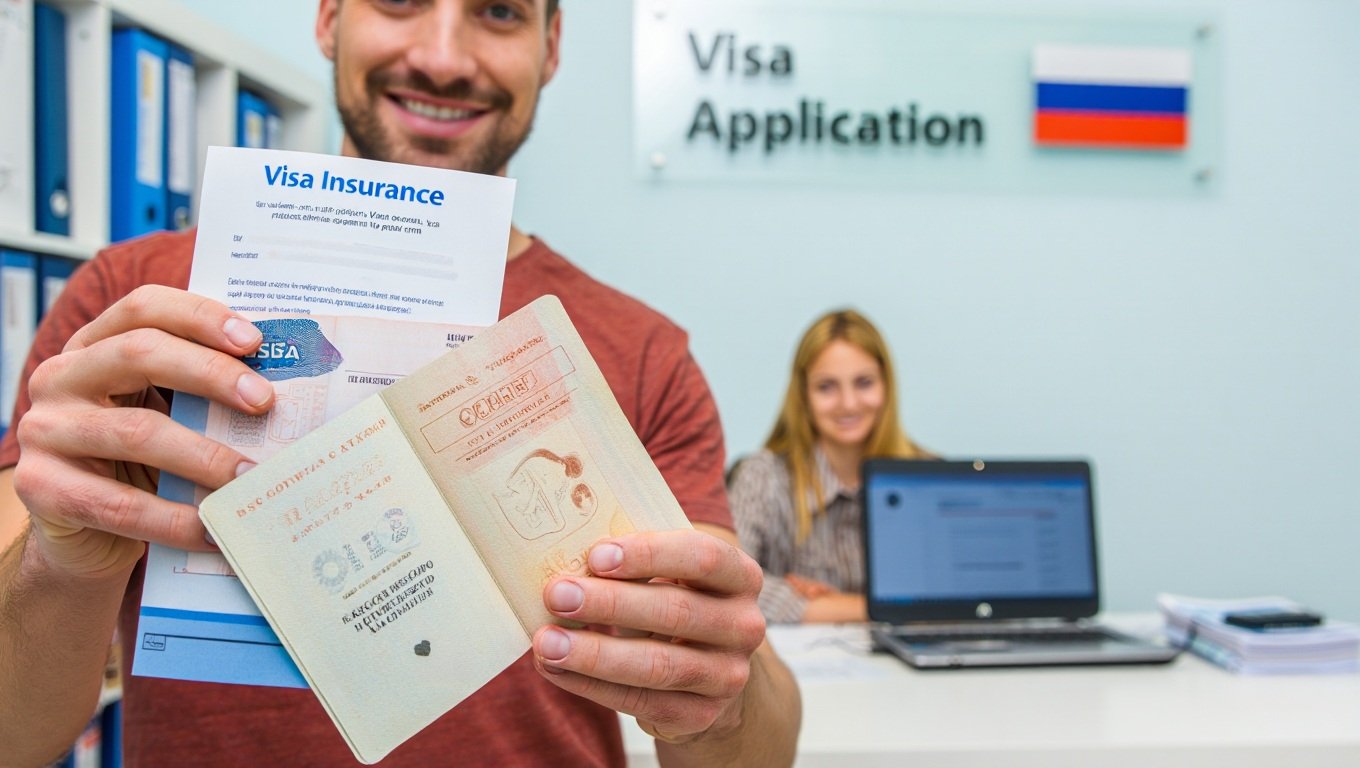Interview with Sergey Afanasiev, International Insurance Specialist
Sergey Afanasiev knows a thing or two about travel insurance. He’s a medical insurance expert, curator of analytical projects on outbound insurance, and a member of the Insure Travel independent research community. We caught up with him to clear up the confusion around Russian visa requirements.
— Do all foreigners really need insurance to enter Russia?
“Yes, absolutely,” Sergey nods. “It’s not optional. It’s law.”
Here’s the deal: according to Government Decree No. 335 (June 9, 2003), you can’t get a Russian visa without valid medical insurance. In other words, having proper Insurance for a Russian visa is mandatory. This rule is backed up by federal laws — No. 114-FZ (“On the Procedure for Leaving and Entering the Russian Federation”) and No. 115-FZ (“On the Legal Status of Foreign Citizens in Russia”). Both clearly state that foreigners must hold a valid medical insurance contract, either mandatory or voluntary, while in Russia.
In plain English: no insurance, no visa. Your application won’t even make it past the starting line. Doesn’t matter if you’re a tourist, student, or expat-to-be. Even travelers from “visa-free” countries still need insurance to legally enter. Border officers may turn you away or fine you if you don’t have coverage. The only exceptions? Diplomats, official delegations, and a handful of categories covered by international agreements.
— What exactly does the policy need to cover?
This is where it gets interesting. The rules aren’t pulled from thin air — they’re defined by the Ministry of Foreign Affairs and fine-tuned by consulates.
- Single-entry visa (up to 90 days): Your policy must cover the entire period.
- Multiple-entry visas (up to 1 year): Annual policies are acceptable, often broken down into 30, 60, 90, 180, or 365 insured days.
- Extended stays (like a 3-year work visa for highly qualified specialists): Several back-to-back 365-day policies may be needed.
And about coverage sums? There’s no fixed number in the law. Instead, Russia follows the principle of reciprocity: if your country asks Russians for €30,000 insurance, expect the same demand when you apply.
The must-have risks include:
- emergency medical care and hospitalization
- outpatient treatment and diagnostics
- medical evacuation and repatriation (yes, including remains)
Policies must work across the entire territory of Russia — regional policies aren’t valid. And to avoid headaches, get it in Russian or English. If not, bring an official translation.
— Do requirements differ by country?
“They do,” Sergey explains. “Some consulates want the insurer’s wet stamp and signature. Others demand a 24/7 assistance hotline in Russia. That’s why it’s smart to check local consular requirements before applying. Saves you from nasty surprises.”
— Can I use a foreign insurance policy?
Yes, but only if it lists a Russian assistance company. And watch out: not all international insurers include Russia in their worldwide coverage. Some quietly exclude it in the fine print. (Lesson learned: always read the small letters, even if they’re boring.)
— Does the visa type change insurance rules?
Exactly. The length and type of your stay dictate the policy:
- Tourist visas (T): insurance must cover up to 30 days.
- Business visas (D): coverage should match either the full stay or the allowed number of entry days.
- Work visas (R): up to 3 years. Policies often need renewal every 365 days, though highly qualified specialists may need full-term coverage.
- Student visas (U): up to one year. Single-entry = 90 days; multiple = 365.
- Private visas (Ch): typically 90 days.
- Transit visas (A): up to 10 days, but insurance is still required.
In other words: short stay or long haul, insurance is always part of the package.
— Do I need insurance to extend my visa inside Russia?
Yes. If you’re already in the country and want to stay longer, you’ll need a new policy. Even for multiple-entry visas, the rule stands: no valid coverage, no extension.
— But what if my country has a visa-free deal with Russia?
Insurance is still mandatory. For example, citizens of the EAEU can enter without a visa, but must get DMS (voluntary medical insurance) with at least 100,000 rubles of coverage if they plan to work. Tourists and guests may be fine with standard travel policies, but border officers can — and often do — ask for proof at entry.
— What happens if I arrive without insurance?
Picture this: you land in Moscow, breeze through the passport line, but then — boom — a fine. First offense: 5,000–7,000 rubles. Do it again, and you could face 10,000 rubles, detention, community service, or even deportation. And yes, it happens. Some unlucky travelers have been placed in holding centers the very same day they landed.
So, is it worth the risk? Not really.
— How about labor migrants — do they need special insurance?
They do. Russia has a tailored DMS policy for labor migrants and stateless persons, based on Central Bank Directive No. 3793 (2015). It lists mandatory risks and sets a minimum coverage of 100,000 rubles. Migrants entering visa-free must buy this within three days of arrival. Many companies now use LMS for migrant workers to help them understand insurance rules, workplace safety, and compliance requirements efficiently. Without such insurance and training, they can’t legally work.
Wrapping it up
Traveling to Russia is exciting — whether for study, business, or just sightseeing. But there’s no skipping the insurance step. It’s not just red tape; it’s protection for you and peace of mind for the authorities. Think of it as carrying an umbrella: most days, you won’t need it, but when the storm hits, you’ll be glad you have it.
 Online Clock
Online Clock